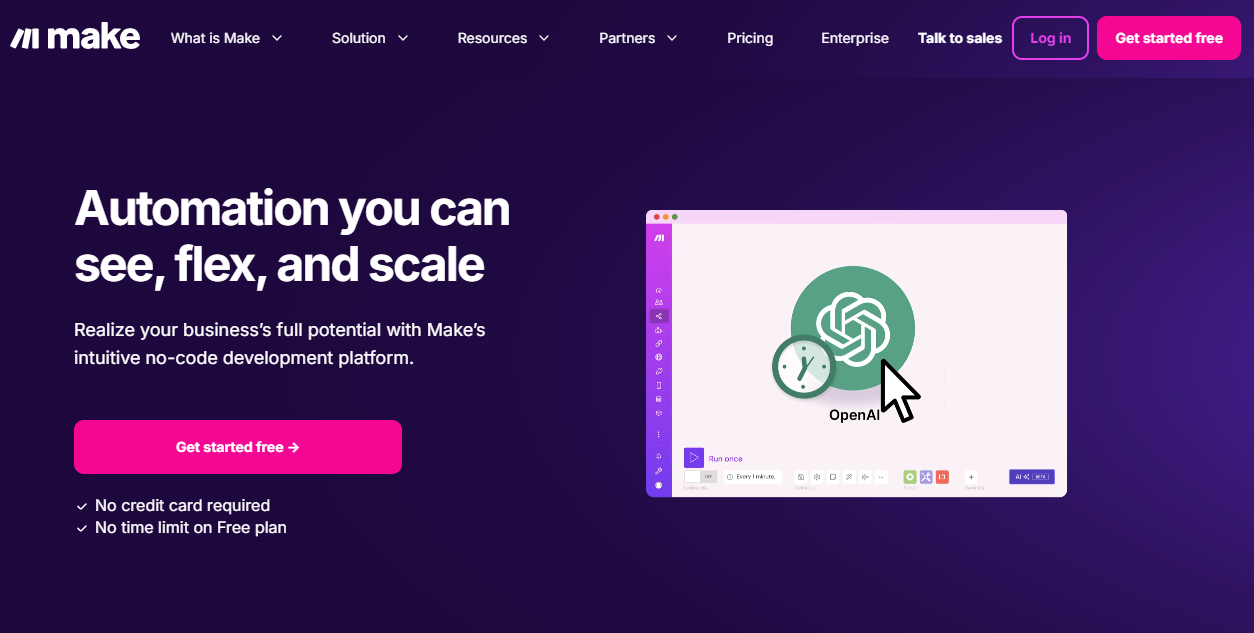If you run a business of any size, you know the pain of juggling 20+ tabs, repeating manual tasks, and wishing someone (or something) could help you scale without burning out.
Let me introduce you to your new silent business partner: Make.com, a powerful no-code automation tool that lets you connect your favorite apps and build workflows that run like magic. This enables you to automate processes and enhance productivity.
Whether you’re onboarding clients, sending reports, managing social posts, or syncing lead data between tools, Make.com helps you get more done with less manual work.
✨ TL;DR (Too Long; Didn’t Read)
| Category | Summary |
|---|---|
| What is Make.com? | A no-code tool to automate workflows across your apps |
| Who is it for? | Business owners, freelancers, creators, marketers, e-commerce brands |
| Why use it? | Save time, automate repetitive tasks, and run smarter |
| Key features | Visual builder, 2000+ app integrations, logic branches |
| Use cases | Automate everything from onboarding to reporting — with 2,000+ app integrations, the use cases are nearly endless. |
| Cost | Free to start, flexible paid plans |
⚡️ What Is Make.com? The Simple Explanation
Make.com (formerly Integromat) is a visual automation platform that connects the apps you use every day and automates your workflows. In plain English, it’s a tool that lets you set up “if this happens, then do that” rules across your digital tools—without coding. Make.com does not require extensive coding knowledge, making it accessible to technical and non-technical users.
Think of it as the digital equivalent of hiring a virtual assistant who works 24/7, never makes mistakes, and costs a fraction of what you’d pay a human. It’s the bridge between your different software tools that don’t naturally talk to each other.
Make.com watches for specific events (like a new lead form submission) and then performs a series of actions across your apps (like adding that lead to your own CRM system, sending them an email, and notifying your sales team).
➡️Try it out for free: Make.com
🔄 How Does Make.com Work?
Make lets you create “scenarios” — automated workflows made up of:
Triggers (e.g. “New form submission”)
Modules (actions like “Send an email”, “Update CRM”, “Post to Instagram”)
Logic and Filters (e.g. “Only if client type = VIP”)
The entire workflow is built in a drag-and-drop interface that looks like a flowchart, making it easy to visualize your business processes.
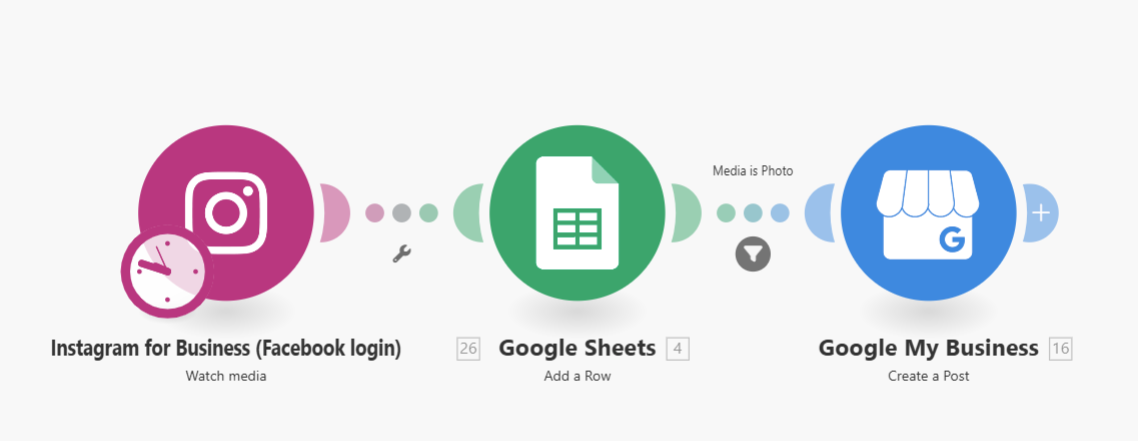
The visual workflow builder enables users to create complex workflows through a simple drag-and-drop easy to use visual interface, facilitating seamless integrations between various applications without the need for technical expertise.
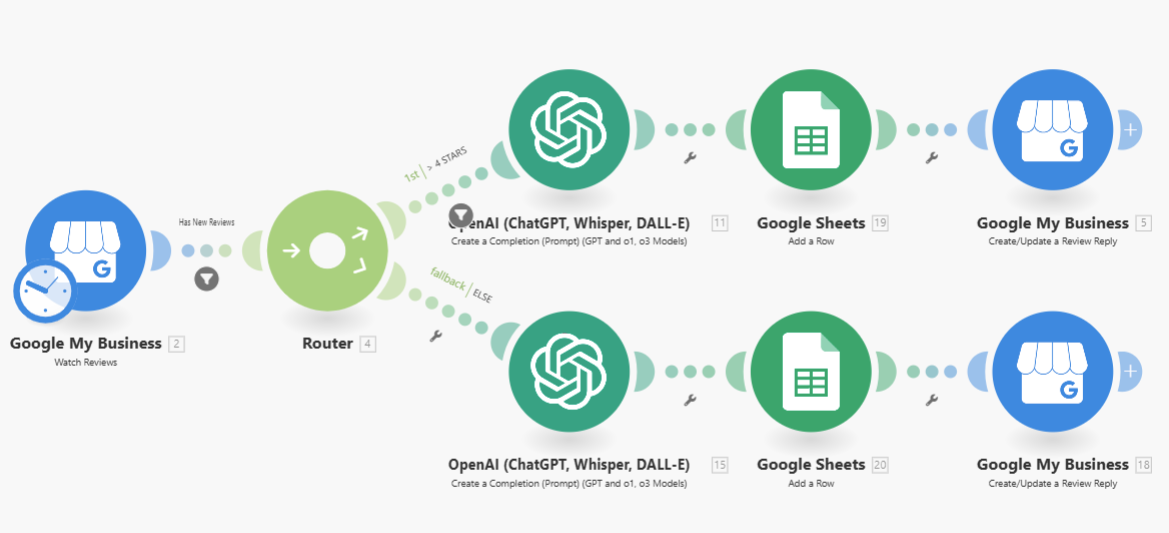
✅ You can build workflows that run every 15 minutes, on specific dates, or instantly based on real-time events.
PRO TIP
While platforms like Make.com are user-friendly and do not require coding skills, having programming knowledge can significantly enhance the ability to implement complex workflows and automation.
🤔 What Is Make.com Really Used For? Real Business Problems It Solves
Beyond the technical definition, it’s important to understand what business problems Make.com actually solves. Here are the most common use cases I’ve seen:
By automating workflows and various business processes, Make.com helps streamline operations, reduce manual tasks and enhance efficiency across different applications and services.
1. Automate Repetitive Tasks: Eliminating Manual Data Entry
Without Make.com, you might be:
Copying customer details from form submissions into your CRM
Manually updating project statuses across different tools
Re-entering the same information in multiple places
Make.com can automatically transfer data between systems, ensuring everything stays in sync without human effort. By automating repetitive tasks, it streamlines business processes, saves time, and minimizes human errors.
2. Standardizing Business Processes
Many business processes fail because they rely on humans remembering every step. Make.com ensures:
Every new client goes through the same onboarding steps
Every lead receives proper follow-up
Important steps never get missed due to human error
3. Creating Custom Notifications & Alerts
Make.com can monitor your business and alert you when:
A high-value prospect fills out your contact form
A client hasn’t paid an invoice after 30 days
Website performance drops below a certain threshold
Inventory falls below reorder levels
4. Building Custom Integrations When None Exist
Many businesses use specialized software that doesn’t integrate with their other tools. Make.com bridges these gaps by connecting:
Legacy systems with modern software
Industry-specific tools with mainstream platforms
Custom-built solutions with off-the-shelf products
5. Scaling Operations Without Hiring
As your business grows, Make.com helps you handle increased volume without proportionally increasing staff by:
Processing more leads with the same team size
Managing more client communication automatically
Handling repetitive tasks that would otherwise require additional staff
This allows your team to focus on more strategic tasks rather than getting bogged down by manual processes.
🎯 Why Business Owners Love Make.com
As a business owner, you wear many hats — marketing, sales, project management, and client servicing. Make.com helps you remove repetitive tasks from your plate, freeing you to focus on high-impact work. Integrating project management software with Make.com can further streamline your business processes and enhance workflow efficiency.
💼 Real-World Use Cases for Businesses:
| Scenario | What It Automates | Tools |
|---|---|---|
| Client Onboarding | Sends welcome email, creates folder, adds to CRM, alerts your team | Gmail + Notion + Slack + Google Drive |
| Lead Management | Captures leads → adds to Airtable → notifies in messaging app | Meta Ads + Airtable + Telegram |
| Monthly Reporting | Pulls analytics → generates PDF → sends to client | GA4 + Google Docs + Gmail |
| Content Scheduling | Posts blog snippets to social + saves to archive | WordPress + LinkedIn + Notion |
| Payment Alerts | Notifies finance when payments fail | Stripe + Google Sheets + Email |
If you’ve ever said, “I wish this could happen automatically…” — Make.com is your solution.
➡️Try it out for free: Make.com
📊 My Personal Make.com Journey: Automating Google Business Profile Management
My successful experience with Make.com has primarily focused on automating Google Business Profile (GBP) management for multiple client locations. Here’s what I built:
Intelligent Review Response System: I created a sophisticated scenario that monitored for new reviews on clients’ GBP listings and automatically responded using different flows based on the review sentiment:
For positive reviews (4-5 stars): The system thanks customers warmly and highlights relevant services they mentioned
For negative reviews (1-3 stars): The system responds with sincere acknowledgment, never makes excuses, and always includes an invitation for the customer to call directly or reach out privately to get their issue resolved
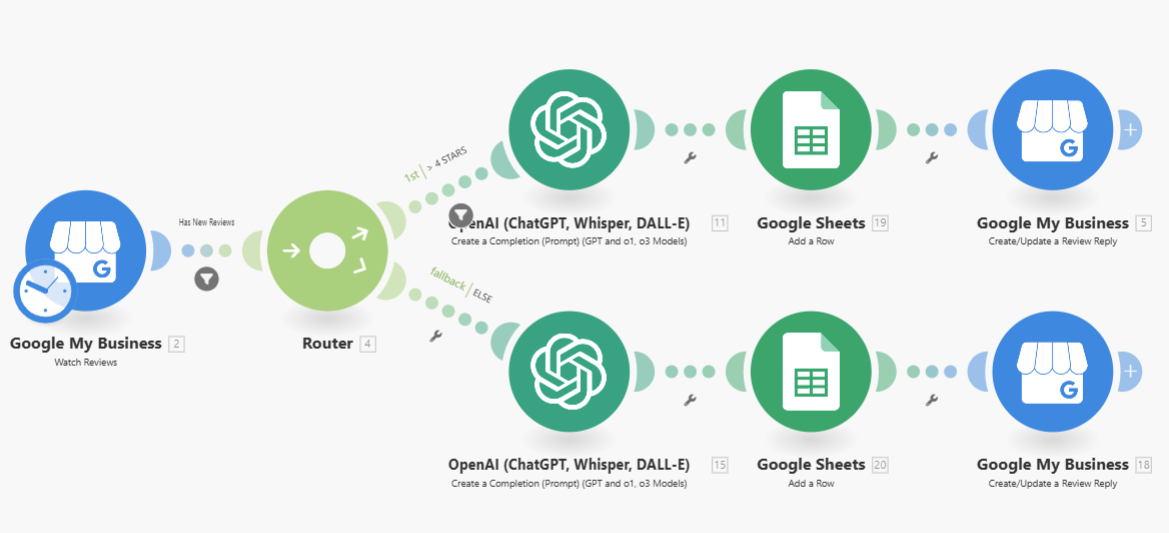

Social Media Cross-Posting: Another scenario automatically took our clients’ social media content and repurposed it as Google Posts on their Business Profiles, complete with images and call-to-action buttons.
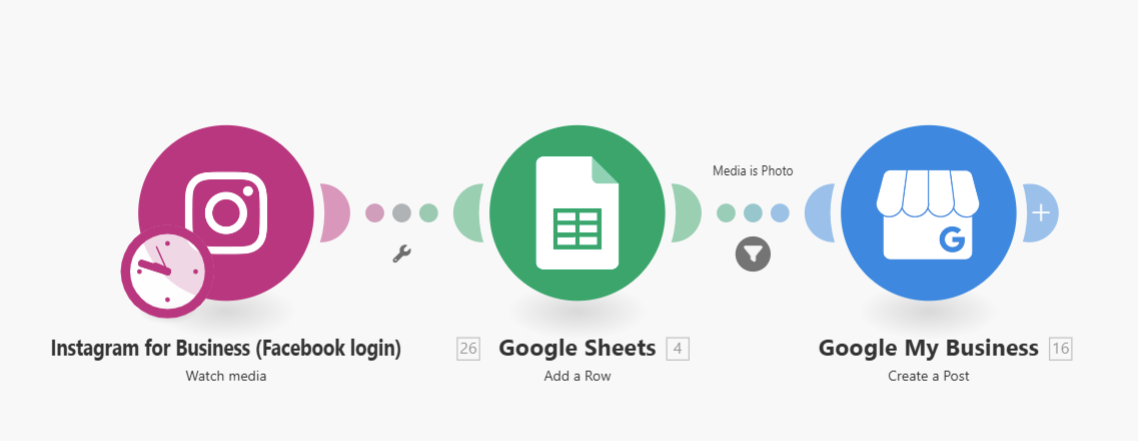

The results were incredible: 😲
Time Saved: At least 1 hour per week for EACH location we managed
Consistency: Every review received a prompt, professional response
Brand Voice: All automated responses maintained the client’s unique brand voice
Reputation Management: Negative reviews received appropriate resolution paths, demonstrating our clients’ commitment to customer satisfaction
Never Missing Updates: Social content was always fresh and current on GBP
For a client with 10 locations, this automation alone saved us 10+ hours weekly while improving their online presence and customer engagement. The consistent and timely review responses also helped improve their overall star ratings over time.
🧠 My Biggest Challenge: The Learning Curve
I’ll be honest — getting started with Make.com wasn’t instant magic. My very first scenario took me nearly 8 hours to build. The good news? That same workflow would only take me 30 minutes today.
Why? Because once you’ve built something once, Make.com makes it incredibly easy to duplicate, reuse, and even share your automation “blueprints” with others. This feature alone cuts down setup time dramatically and makes scaling your automations across different projects or clients effortless.
I also hit a few bumps early on — here are the lessons I learned so you don’t have to repeat them:
Starting too complex: My first automation tried to do everything at once. Start with simple two-step scenarios and build from there.
Not using templates: I discovered Make.com’s template gallery too late. They have pre-built automations you can customize.
Ignoring error handling: My workflows would sometimes break when unexpected data came in. Now I always add error notifications.
🧩 Key Features That Make.com Stands Out
✅ Drag-and-Drop Visual Builder Perfect for business owners who think visually and don’t want to code.
🔀 Advanced Logic (Routers, Filters, Conditions) Handle complex workflows with if/then branches — no code needed.
- ♻️Scenario Templates — Use pre-built templates to launch automations quickly with just a few clicks
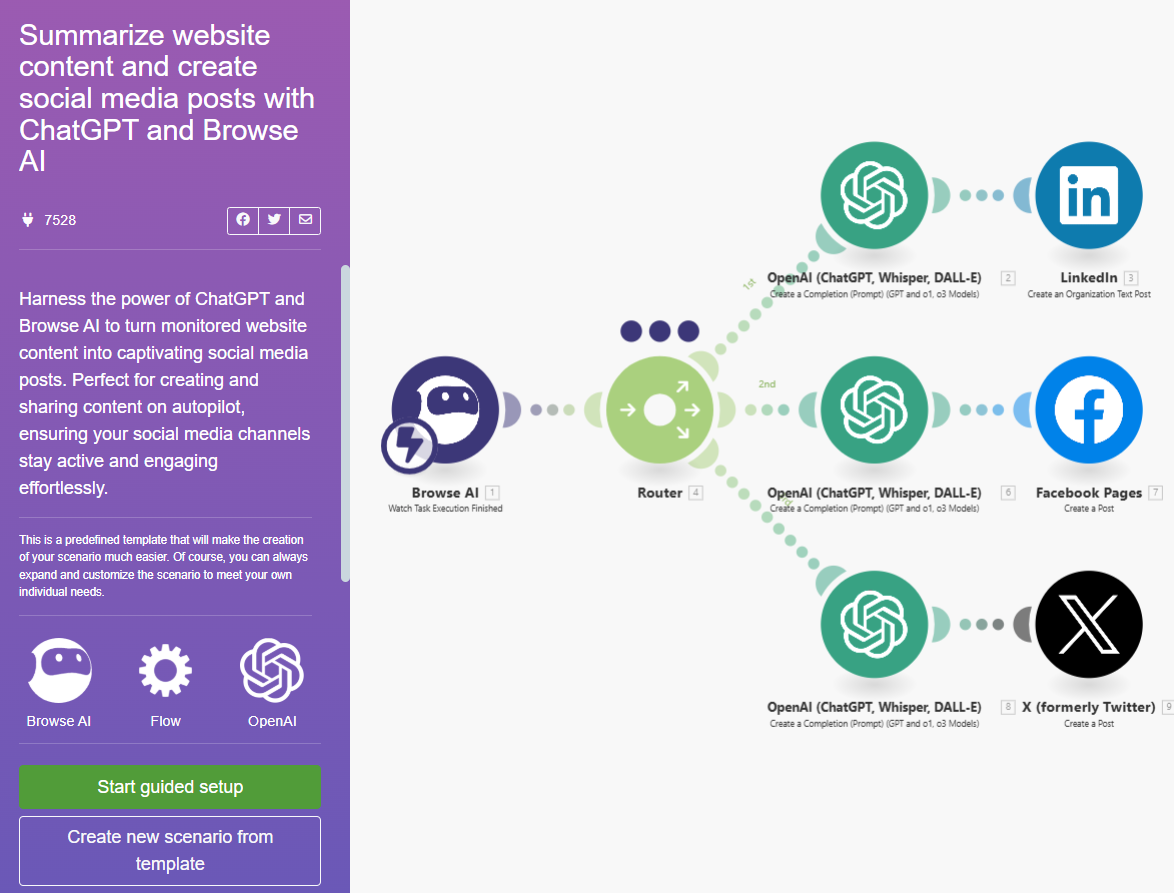
🗓️Precise Scheduling Run automations daily, weekly, or based on real-time triggers.
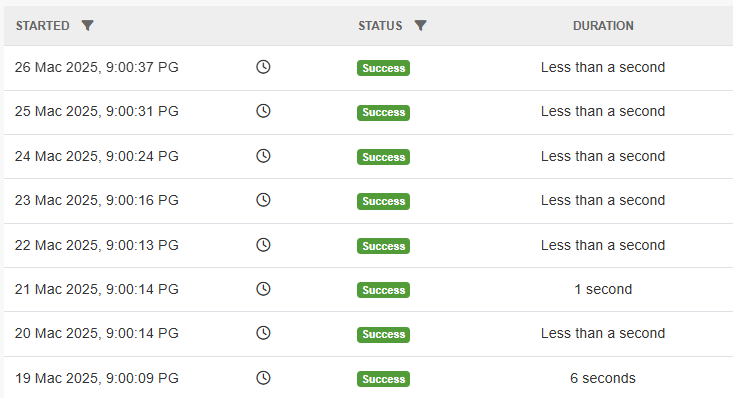
🔌 2000+ App Integrations Works with Google Workspace, Airtable, Notion, Slack, Shopify, Facebook Ads, ClickUp, Telegram, Stripe, WordPress, etc.
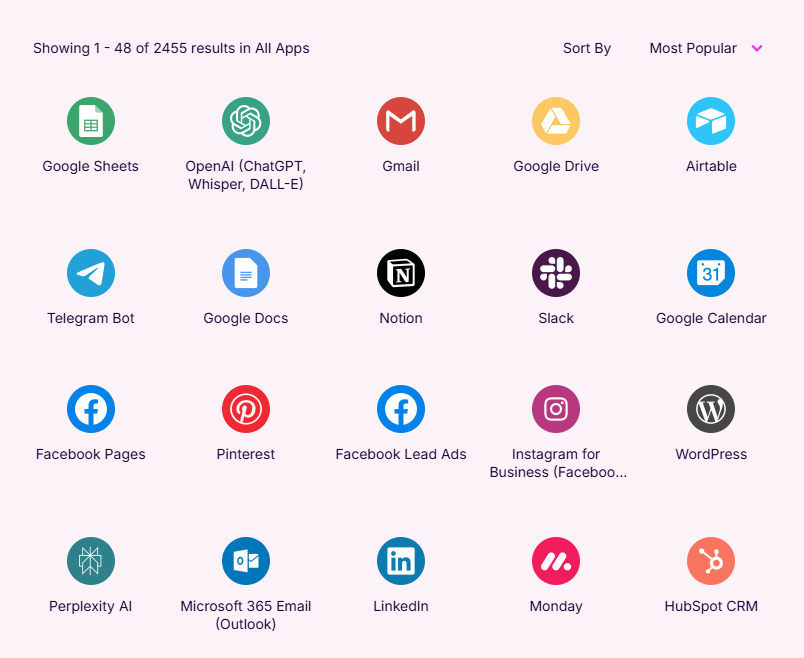
🔐 Enterprise-Grade Security ISO-certified, GDPR-compliant, and data encrypted end-to-end.
💾 Data Storage and Transformation Store information between runs and transform data formats without external tools.
🧪 Testing and Debugging Tools Test scenarios before going live and troubleshoot issues easily.
📱 Mobile App Monitor and manage your automations on the go. (Available on both iOS and Android)
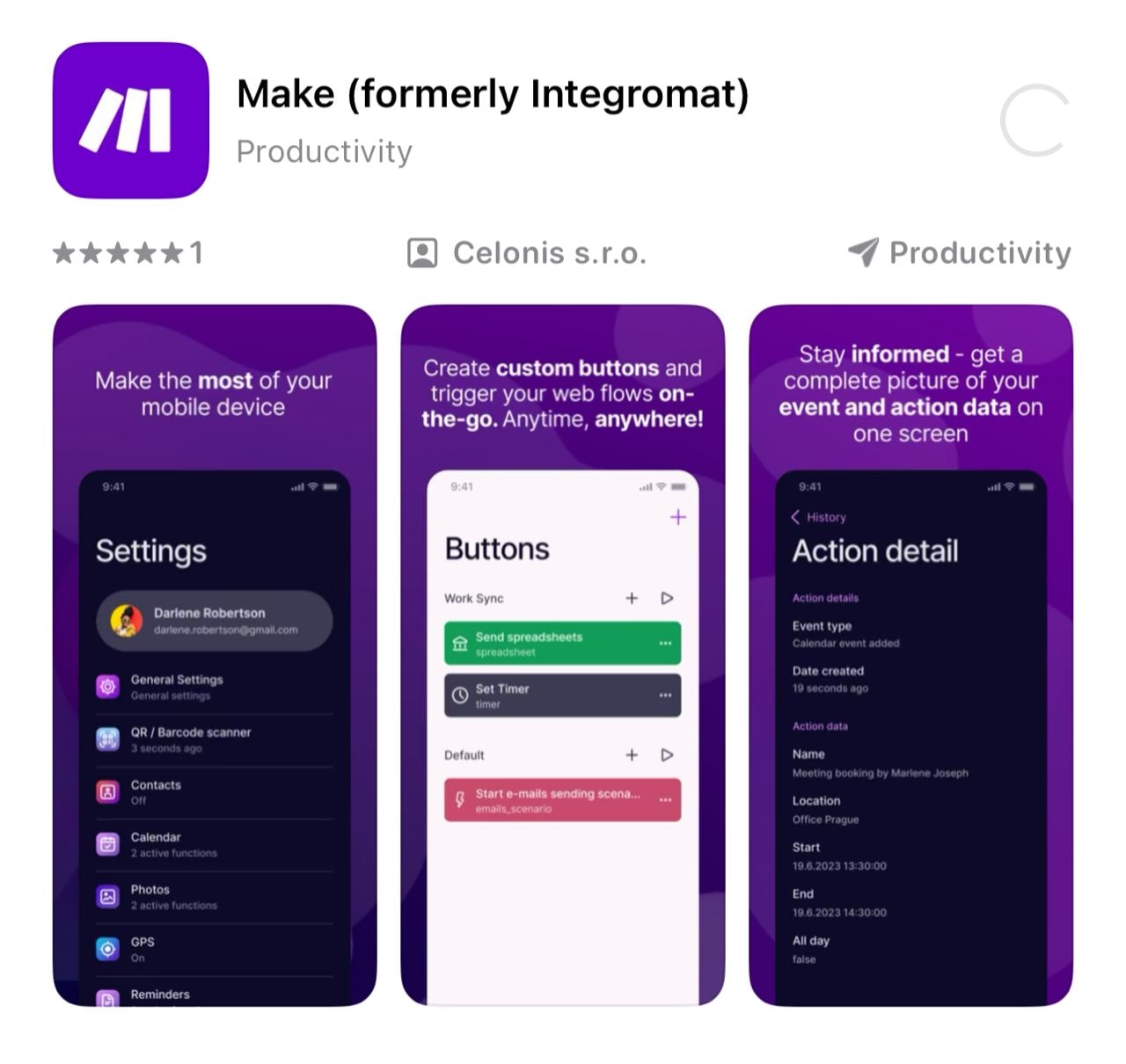
💸 Understanding Make.com’s Pricing Model
Make.com uses an operations-based pricing model, which can be confusing at first but makes sense once you understand it:
Operations: Each action in your automation (like sending an email or updating a record) counts as an operation
Scenarios: The number of different automation workflows you can create
Interval: How frequently your automations can run (from 1 minute on paid plans)
The free version includes:
1,000 operations per month
2 active scenarios
15-minute minimum interval between runs
This is perfect for testing and small-scale automation. As your needs grow, paid plans start at around $9/month and scale up based on usage.
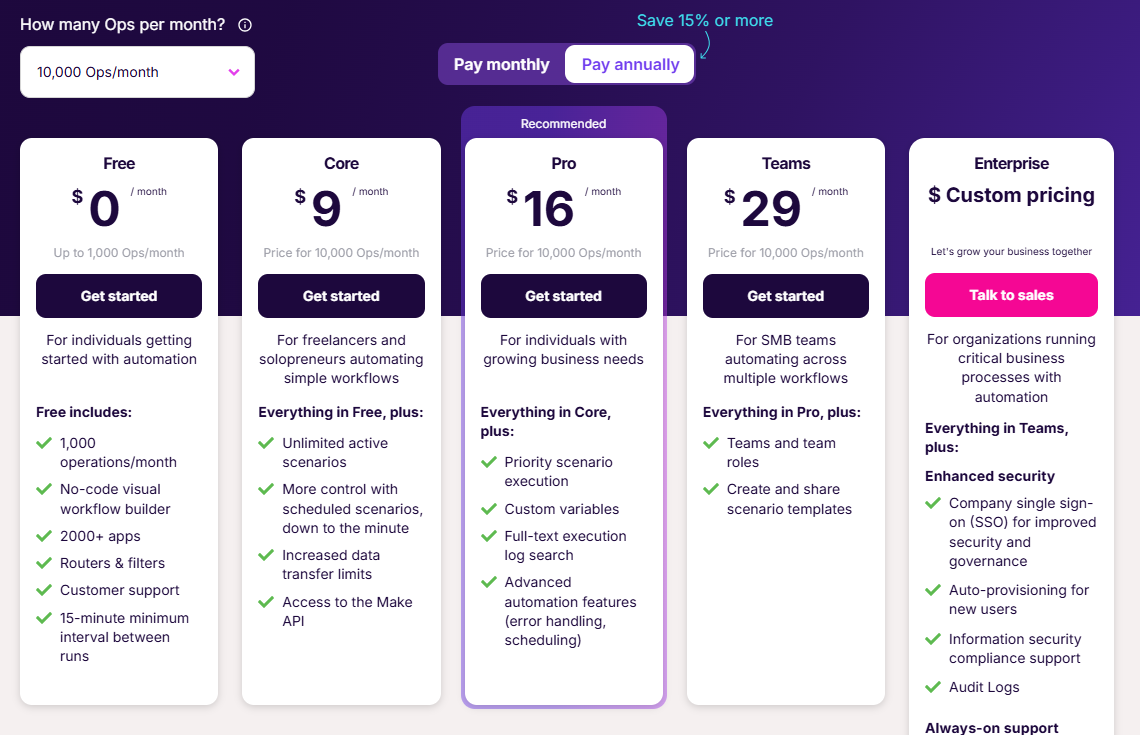
Pro Tip
Most businesses find they need fewer operations than they initially estimate. Start with a smaller plan and upgrade as needed rather than overpaying from the beginning.
🚀 Getting Started: Your First Make.com Automation
If you’re new to Make.com, here’s a simple step-by-step guide to create your first automation:
Sign Up: Create a free account at make.com
Choose a Template: Browse the template gallery for something similar to what you want to build
Connect Your Apps: Authorize Make.com to access the tools you use (Google, Slack, etc.)
Customize Your Flow: Modify the template to fit your specific needs
Test Your Scenario: Run a test to make sure everything works as expected
Schedule or Activate: Set your automation to run on a schedule or trigger in real-time
Monitor: Keep an eye on your automation’s performance in the dashboard
The beauty of Make.com is that you can start with something incredibly simple (like getting email notifications when someone fills out your contact form) and gradually build more complex workflows as you become comfortable with the platform.
🛠️ Common Make.com Terms Explained
For newcomers, here’s a quick glossary of Make.com terminology:
Scenario: A complete automation workflow from start to finish
Module: A single action or operation within your scenario
Trigger: The event that starts your automation (e.g., new email, form submission)
Iterator: A tool that processes multiple items one by one (like rows in a spreadsheet)
Router: A decision point that sends your automation down different paths based on conditions
Data Store: A database within Make.com where you can store and retrieve information
Webhook: A way to receive data from external sources that don’t have direct integrations
Understanding these terms will help you navigate Make.com‘s documentation and community forums more effectively.
🤔 FAQs About Make.com for Business Owners
Yes, Make.com maintains enterprise-grade security with ISO 27001 certification and GDPR compliance. They use encryption for data both in transit and at rest.
You can build simple automations within an hour of signing up. More complex processes and workflows might take a few days to learn. Most business owners become comfortable with the platform after 1-2 weeks of regular use.
Yes, through webhooks and the HTTP/SOAP modules. If your system can send or receive data via API, Make.com can likely connect to it.
Most business owners can build powerful automations without any coding knowledge. However, for very complex scenarios or custom API integrations, basic knowledge of JSON and data structures can be helpful (but not required).
While a VA can handle varied tasks with human judgment, Make.com excels at repetitive, rule-based processes. Make.com works 24/7, never makes typos, and costs a fraction of human labor. Many businesses use both in tandem—automation for routine tasks and VAs for work requiring human touch.
💬 Final Thoughts
Make.com is one of the most flexible, powerful no-code automation platforms available today.
Whether you’re a solopreneur or running a large enterprise or team, it helps you:
Save hours each week
Reduce human error
Deliver a better experience to your customers
Grow your business without growing your workload
You don’t need to hire more people. You just need better systems.
The biggest regret most business owners share? Not setting up these automations sooner.
➡️Try it out for free: Make.com
